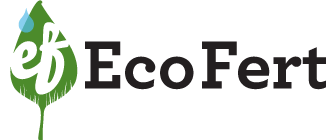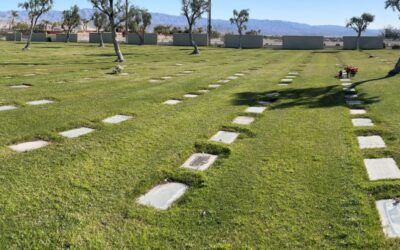Creating a healthy and attractive landscape during the summer can be a challenging task for many facility managers. Commercial property landscape maintenance requires the ability to both see the big picture and manage a whole lot of little details all at once. It’s about much more than making a space look good, it also needs to be planned, executed, maintained for the best look, function, and long-term viability. In our work with commercial property landscaping, we’ve rounded up the following tips to help new managers keep their properties looking great.
Create a Maintenance Plan
Creating a comprehensive maintenance plan that addresses all of your property’s needs is the first—and most important—step in promoting a sustainable landscape. Your maintenance plan should identify high-risk areas, set expectations for the exterior maintenance team, establish a schedule for routine tasks, and identify non-routine needs.
Identify high-risk areas. Facility managers should work with their exterior maintenance staff to identify areas on the property that are at high risk for damage and therefore, require more attention throughout the season. Specifically, you should discuss areas that have experienced flooding, downed trees, or need more irrigation. Completing this step will help decrease the risk of future damage to your property.
Set expectations. Setting expectations is another key component that will help you design a successful maintenance plan. Expectations will vary depending on the type of property you are managing. For example, if you are managing a property where the appearance of the landscape is important to the brand of the business—such as retail centers, hotels, or business parks—your landscape should reflect a minimum of a crisp, clean, and safe environment at all times.
On the other hand, if you’re the facility manager for an industrial park—where the landscape isn’t a reflection of your business—a more minimal service approach can be taken to sustain the landscape. Sharing any vegetation preferences (for example, flowers, trees, grass, etc.) with your landscaping contractor or crew will also help you to stay on the same page.
Plan for routine maintenance. Likewise, establishing when your property will receive routine maintenance, such as mowing, mulching, and trimming, is extremely important for keeping tenants, guests, and residents happy. For example, in a retail environment where tenants don’t typically open before 10 a.m. and close in the late evening hours, your crew should plan to come on site before the stores open. In contrast, for hotels, apartment complexes, or residential communities, routine maintenance should occur during the midday to early evening hours while most tenants or residents are at work.
The frequency of service is equally as important when you’re working on creating a maintenance schedule. Again, how often your property will need service is dependent on the profile of the property. High-profile properties, such as hotels, retail centers, and business parks, need to be maintained consistently and serviced more frequently than manufacturing or industrial properties.
Another factor that influences service frequency is the type of grass you have planted, as certain grasses grow at faster rates and require more frequent watering than others. The same principal holds true for flower selection and other vegetation that you have planted. Asking the distributor or nursery about the watering requirements will help you establish an irrigation schedule. Having a drip irrigation system installed in flowerbeds close to walkways can also help facility managers accurately maintain their beds, as they can take weather conditions into account.
Consider non-routine maintenance. Due to the hot and humid temperatures that summer delivers, watering the grass and other vegetation as close to sunrise as possible will help reduce the risk of water pooling around plants all night or burning off during the heat of the day. And unless you want a muddy landscape, irrigation should never occur on the same day as the grass mowing.
Managers also need to designate a specific time for pest control and fertilizer treatment. From an agronomics perspective, it’s essential that your property receive treatment before summer hits. If pesticides and other weed control substances are applied to vegetation in temperatures above 85 degrees Fahrenheit, it will burn the vegetation.
Be water smart. An efficient irrigation system can save thousands of gallons of water each year, translating into lower utility bills and a greener footprint, all of which owners and tenants can appreciate. Once you have an irrigation system installed and working, it’s important to inspect it regularly to make sure it’s working properly. Check for damage to any part of the system, and also check to make sure the different areas of the property are receiving the right amount of moisture.
Commercial properties are a major investment that needs constant attention and care. We offer commercial landscape services ranging from sustainable design and construction to maintenance and irrigation and our budget-friendly solutions are what your company needs to ensure your first impression is the best it can be.
The EcoFert Advantage
EcoFert provides landscape application and fertigation solutions to the most difficult landscape care problems. We uniquely combine the application advantages of fertigation delivery systems with the soil-enhancing benefits of organic-based amendments.
Our “Sole Source” programs include installation and maintenance of delivery systems, ongoing laboratory-generated tests of property soil conditions, and monthly application of specially prescribed soil amendments. to create a healthy, safe, and sustainable landscape all year round for properties in Northern and Southern California.
You May Also Enjoy..
Ecofert Initiates Program at Desert Memorial Park
EcoFert, Inc. is excited to welcome Desert Memorial Park (Park) of the Palm Springs Cemetery District (District) as a new client. The Park, which opened in 1956, is an iconic location; being the last resting place of such luminaries as Frank Sinatra and Sonny...
Yucca Valley Project Announcement
New & Notable ProjectsEcoFert, Inc., the leading full service provider of organic based soil amendments applied through fertigation delivery systems installed and maintained by the company, is proud to welcome the City of Yucca Valley as a new client. EcoFert has...
What are wetting agents and how can they improve your field’s health?
ResourcesWetting agents are common tools we use for the purposes of conserving irrigation water and/or managing soil water repellency. If you manage a field, you know how important it is to keep the grass healthy and green. One way to do this is by using wetting...

